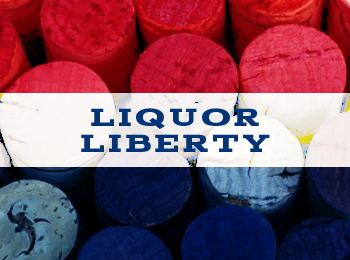Media
Anti-Privatization Study Dismantled
 A study frequently cited by liquor privatization opponents is soundly debunked in an article by Trevor Butterworth, a statistics guru at Forbes.com. Butterworth dismantles the methodology of the Center for Disease Control’s (CDC) Task Force study that claims privatization would increase alcohol consumption (though admitting no connection with alcohol-related harms). Mr. Butterworth’s critique concludes with a few choice words:
A study frequently cited by liquor privatization opponents is soundly debunked in an article by Trevor Butterworth, a statistics guru at Forbes.com. Butterworth dismantles the methodology of the Center for Disease Control’s (CDC) Task Force study that claims privatization would increase alcohol consumption (though admitting no connection with alcohol-related harms). Mr. Butterworth’s critique concludes with a few choice words:
[…] whatever way you parse the recommendations of the Task Force, and their adoption by the CDC, such reasoning is about as robust as Styrofoam. This is an astonishing abuse of data in the service of trying to sway legislation – and one which points to an agency being driven by politics and ideology, and not by science.
Why such an emphatic condemnation? The Task Force study relies on something called Single Distribution Theory to reach its anti-privatization conclusion. This theory contends that changes in the mean alcohol consumption level result in corresponding changes in consumption levels for all alcohol drinkers. So, if liquor stores are privatized and alcohol consumption increases, Single Distribution Theory suggests that those who use alcohol irresponsibly will also be drinking more, resulting in more DUIs and other social ills.
The problem is, Single Distribution Theory has been essentially debunked for more than a decade for a variety of reasons explained by Mr. Butterworth. To put it simply, some people wouldn’t accept a drink for free, while others, like many Pennsylvanians, are willing to skirt the law and drive across state lines to get the products they want. These bootleggers will not necessarily be drinking more under privatization; they will just be keeping their tax dollars in Pennsylvania and employing workers in our own state.
He also points to another major flaw in the research. The Task Force found a 44 percent increase in median alcohol consumption in states after privatization. But this is mostly the result of the dramatic rise in wine consumption across the U.S. over the past few decades—an increase which also occurred in states that did not privatize alcohol.
Butterworth aptly calls the study, “an astonishing abuse of data in the service of trying to sway legislation,”—very convenient for vested interests currently seeking to keep Pennsylvania stuck in the 1930s, but very inconvenient for the rest of us.